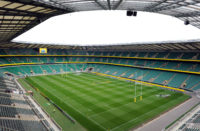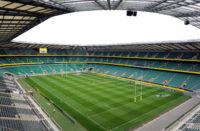There is something special about the number seven. Think of the seven days of the week, the seven deadly sins or the seventh heaven. Everyday examples such as the seven continents and seven colours of the rainbow, reinforce the number’s prevalence in our lives, making it feel almost naturally significant.
Lucky Number Seven
For sports fans, the number resonates like few others. In football, Cristiano Ronaldo, Eric Cantona, Luís Figo, Franck Ribéry, and David Beckham all wore the shirt number during their football careers. Elsewhere, baseball legend Mickey Mantle and American Football star John Elway famously donned the number seven too.
Of course, it’s known as the lucky number seven for a reason due to its staple in casino games. In classics like craps, rolling the number seven on a pair of dice means the player wins. And for those who play Starburst at Betfair Casino, like many popular online slot games, the number, stylised in Starburst as the “Red Lucky Number Seven”, is one of the highest-paying symbols while landing a trio of sevens leads to a jackpot prize. Whether culturally, spiritually, or historically, seven enjoys a mystique that elevates its significance.
The Number Seven’s Legacy in Rugby
In rugby, seven has also added to its mystique as the shirt assigned to the openside flanker. Like in football, some of the world’s most iconic players have pulled on the jersey such as David Pocock, Schalk Burger, Justin Tipuric, George Smith, Michael Hooper, and the great Richie McCaw.
It is one of the most electrifying positions on the rugby field. Combining raw athleticism, explosive speed, and unbreakable tenacity to secure and protect possession for the team while causing chaos for opponents, these forwards are always in the game. It’s why, when we think of some of rugby’s biggest stars, openside flankers get plenty of attention.
The Players Who Have Made the Number Seven Shirt Iconic
George Smith is one of rugby’s most revered number sevens, known for his extraordinary versatility and impact across multiple leagues worldwide. His standout moments include a legendary performance during the 2001 Lions series, showcasing his ability to dominate at the breakdown despite his smaller stature compared to his peers.
Following in Smith’s footsteps, Michael Hooper brought a fresh dynamism to the role with his unmatched speed and agility. Known for his relentless pursuit of turnovers, Hooper quickly became a Wallabies mainstay and captain by the age of 22, a testament to his leadership and on-field intelligence.
Yet, Richie McCaw stands atop as arguably the greatest flanker of all time. McCaw’s record is astonishing: more caps than any other player, countless wins, and two World Cups. Yet, it was his relentless drive and desire to elevate both his game and the sport that set him apart. McCaw wasn’t just a player; he was a game-changing, legendary rugby machine. These three players, along with a variety of other great openside flankers, have helped elevate the number seven’s curious mystique in rugby.
The number holds a special significance in rugby because it symbolises the extraordinary athleticism and impact of openside flankers. Legends like Richie McCaw, Michael Hooper, and George Smith have elevated the jersey’s prestige, blending speed, resilience, and unmatched tactical awareness to dominate matches and inspire fans worldwide.
This ultimately builds upon the number seven’s compelling resonance in culture, history, religion and elsewhere. Beyond rugby, its broader allure only enhances its status, intertwining superstition and spirituality, making it a number that transcends boundaries and continues to captivate the world.
























